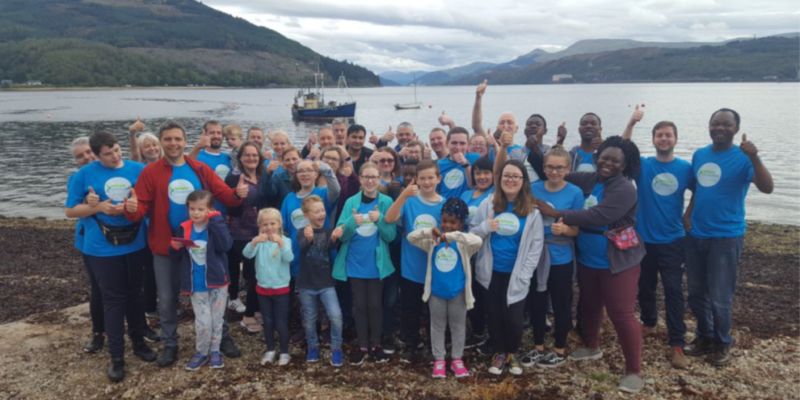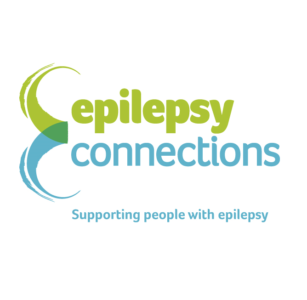
Epilepsy Connections is a small charity with a big impact throughout Scotland. We run a variety of projects and services within the Greater Glasgow & Clyde and Forth Valley, offering essential support, information and advice to people with epilepsy, their families, friends and carers and the professionals working with them. Our purpose is to help people affected by epilepsy develop resilience and independence so that they can take charge of their condition and live their lives fully. As we celebrate our 25th anniversary this year, we reflect on our achievements and unwavering commitment to our mission and values, fostering lifelong connections with those who rely on our support. Through every step, we’ve remained dedicated to offering hope, healing and a sense of belonging.
Despite there being 1 in 97 people living with epilepsy in Scotland, the condition has long been misunderstood and stigmatised, fuelled by persistent myths and misconceptions. In ancient times, seizures were often seen as a curse, something contagious or even supernatural. While medical understanding has progressed, social stigma still lingers today. People with epilepsy continue to face discrimination and inequality in society, workplaces and schools causing them to face higher rates of mental health issues, unemployment, isolation and poverty.
Our wide range of services is designed to support people with epilepsy as they navigate the many challenges that health and social inequalities can create.
A recent epilepsy study found 60% of people with epilepsy have felt isolated due to social stigma. To tackle this, we offer a range of services that foster connection and support. These include a Befriending service, monthly social meetups in Glasgow and Forth Valley, weekly meetups at our allotment in Glasgow West End where people can learn gardening skills or simply socialise, and monthly support groups that offer a safe space to share experiences. We also provide a free counselling service—vital, given that Epilepsy Scotland reports 1 in 3 people with epilepsy experience depression and 46% struggle with anxiety. These services aim to create space for healing from the isolation and mental health challenges epilepsy can bring, while offering the powerful reassurance that no one has to face it alone.
A 2023 epilepsy study found that 60% of people with epilepsy have faced unequal treatment at work, and 42% of employers admitted they would avoid hiring someone with epilepsy. Our Fieldwork service supports individuals navigating employment discrimination, benefit systems, and access to additional services—helping to break down barriers to equal opportunities. We also run an online self-management course, Epilepsy Well Connected, which offers a safe, empowering space to share experiences, build confidence, and learn practical coping strategies. One participant, who had lost all confidence after being off work due to her epilepsy, said she felt she had ‘finally found her tribe’ on the course. By the end, she had returned to work and negotiated a role better suited to her health—describing the experience as ‘life-changing.’
An recent survey revealed 36% of children with epilepsy don’t receive the support they need to fully participate in school life, and 21% are excluded from activities and opportunities. This early inequality can shape a young person’s entire future—impacting confidence, education, and life chances. To challenge this, we deliver Seizure Smart awareness sessions in schools, aimed at both pupils and teachers. By increasing understanding and reducing stigma from a young age, we help ensure children with epilepsy can thrive alongside their peers and access equal opportunities. Over the years, we’ve organised several trips to Ardentinny Outdoor Centre, giving children and young people with epilepsy the chance to have fun and take part in outdoor activities they might otherwise be excluded from at school. Last year, we took another step in supporting families affected by epilepsy by running our first respite trip to Netherurd Garden House. This offered a rare opportunity for families to rest, recharge, and connect with others who truly understand their challenges. Too often, families and children affected by epilepsy face barriers to participation, from stigma and social isolation to the lack of tailored support. These trips are one way we challenge those health inequalities by giving children the chance to experience the same joys and opportunities as their peers.
At Epilepsy Connections, we’re proud to support people with epilepsy every step of the way—but tackling the deep-rooted inequalities they face requires more than support alone. There is a pressing need for targeted reforms in employment, education, and access to benefits to create a society that is truly inclusive and understanding. By working together—with community link workers, health professionals, and wider networks—we can offer more than just services. We can offer real hope, healing, and a future where everyone with epilepsy has the chance to thrive.
Lucy Mineard is Communications Officer at Epilepsy Connections.

